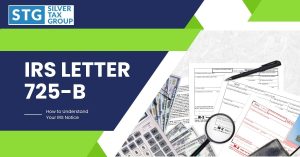Our Tax Compliance Guide Key Takeaways
The Basics of Tax Compliance
- Tax Compliance Fundamentals: It involves fulfilling obligations as per the tax code, accurately reporting income and expenses to avoid penalties or audits.
- Evolving Tax Landscape: Stay informed and flexible to adapt to new policies and changes in tax laws.
Different Types of Taxes and Filing Obligations
- Diverse Tax Types: Includes income, sales, federal, and international taxes, each with unique rules.
- Corporate Tax Calculations: Businesses face additional complexities in calculating corporate taxes.
- Timely Filing and Accuracy: Essential to avoid penalties; keeping records for at least three years is advisable.
Small Business Owner Compliance
- Understanding Specific Business Taxes: Knowledge of applicable taxes (like sales and employment taxes) is crucial.
- Accurate Reporting and Record Keeping: Maintain detailed financial records for all transactions.
- Avoiding the Tax Gap: Non-compliance contributes to a significant tax gap; full compliance is both a legal duty and a civic responsibility.
Leveraging Technology & Tools
- Tools like SurePrep Tax Return Software: Helps streamline filing returns and maintaining records.
- Digital Tools for Expense Management: Software solutions for tracking spending and generating reports.
Confidence in the Tax System
- Importance of Trust: Trust in the tax system encourages compliance; transparency and fairness are key.
- Educational Tools from the IRS: Helps taxpayers understand their obligations and rights.
Tax Compliance with Tax Experts
- Navigating Tax Complexities: Understanding the various forms of taxes and staying organized is crucial for compliance.
- Technology as an Aid: Utilize technology to simplify tax-related tasks but remain vigilant against human error.
- Building Trust in the Tax System: Trust impacts taxpayer behavior; seek professional guidance when in doubt.
Navigating the complex labyrinth of tax laws, deciphering reporting requirements, and understanding intricate instructions can be a daunting task. That’s what tax compliance can seem like for many of us.
The twists and turns of tax laws, the riddles posed by reporting requirements, the dead ends of confusing instructions – it all seems designed to leave us lost and bewildered.
You may have dipped your toes into this complex world before or maybe you are diving in headfirst as a small business owner. Either way, we understand how daunting it can be.
This post is your compass. It will guide you through different types of taxes and filing obligations from federal to international ones; help navigate the unique challenges faced by small businesses in maintaining tax compliance; and shed light on common pitfalls within tax compliance such as human error and missed deductions while exploring solutions using technology advancements.
There’s an exciting journey waiting for us just around the corner. Let’s take the plunge and discover what awaits us!
Understanding Tax Compliance
Tax compliance can seem like a walk through a labyrinth. With changing tax laws, varying requirements, and intricate regulations, it’s no wonder that many feel overwhelmed.
At its core, tax compliance is about fulfilling your obligations as per the tax code. It means accurately reporting income and expenses on your taxpayer compliance forms to avoid penalties or audits from authorities.
Navigating the Complexities of Tax Compliance

The tax landscape is ever-evolving with new policies often introduced by lawmakers. Staying in line with the law necessitates flexibility and staying informed of modifications.
This task may appear daunting but fret not. We’ve got some tips up our sleeves that might just make this journey smoother for you. The key lies in understanding different aspects of the tax code, which governs all things related to taxes including deductions allowed, calculation methods used, rates applied, among other things.
To put it into perspective, consider this: The estimated average gross tax gap – the difference between total amounts owed by taxpayers and what they actually pay – stands at a whopping $540 billion annually, while net projections stand around $470 billion (source here). That’s an immense sum left unpaid due to non-compliance.
- Awareness: Be cognizant about deadlines for filing returns or paying dues so as not to miss out, causing unnecessary trouble later on.
- Precision: Make sure each detail entered in your return matches with corresponding records because discrepancies could lead IRS agents to knock at your door.
- Record Keeping: Maintain a neat and organized record of all tax-related documents. This will help during audits or when you need to reference past filings.
For the latest updates and information straight from the source, subscribe to IRS e-News. Stay informed, stay ahead.
Key Takeaway:
Grasping tax compliance isn’t as tough as it seems. It’s all about knowing your obligations, staying updated with ever-changing laws, and being precise in reporting. Keep a clean record of all documents – they’re lifesavers during audits or referencing past filings. Don’t forget to stay informed with reliable sources like IRS e-News.
Types of Taxes and Filing Obligations
Navigating the tax landscape can be like walking through a maze. Navigating the tax system can be tricky, with a variety of levies from income to sales taxes that each have their own regulations.
Let’s start with income tax. This is levied on both individuals and businesses based on their earnings for the year. For businesses specifically, it’s known as corporate tax. The twist here is that calculation methods may differ from bookkeeping methods – something not everyone knows.
Federal and International Tax Obligations
Moving beyond individual or corporate income taxes, we have federal taxes that fund national programs such as defense and social security. Then there’s international taxation – these come into play when you have cross-border transactions or operations.
A small tidbit: US citizens must pay federal income tax no matter their location, even if they live abroad. Yes indeed.
Sales & Property Taxes – The More Visible Ones.
Sales taxes are collected at point-of-sale purchases while property taxes apply if you’re lucky enough to own real estate properties.
Your Responsibilities As A Citizen And Business Owner
All these different forms require separate filings, each carrying specific deadlines. To add another layer to this complex cake – there could be penalties for late submissions too.
So remember folks: file your returns on time; understand what applies to your situation; use accurate data when filing them (no guesstimates please); make sure all payments are made on time; and, finally – keep all records for at least three years in case Uncle Sam comes knocking.
Let’s Not Forget State Taxes
Last but not least: state taxes. Depending on where you live or run your business, there might be additional state-specific income, sales, or property taxes.
Key Takeaway:
Wading through the tax maze is no easy feat, with different types like income, sales, federal, and international taxes each having unique rules. Businesses face additional complexities in corporate tax calculations.
Timely filing using accurate data can help avoid penalties while keeping records for three years is a good safety net. Remember state-specific taxes may add to your obligations too.
Ensuring Compliance as a Small Business Owner
Running a small business requires managing various responsibilities, including understanding and adhering to tax laws and filing an accurate income tax return – all of which can be overwhelming for many owners who tend to wait until the last minute. From understanding complex tax laws to filing an accurate income tax return, there’s plenty on your plate.
The challenge becomes more daunting when we consider statistics from the IRS showing many small business owners often delay their obligations until nearing deadlines. This approach can lead to unorganized documents and errors in tax filings – mistakes that could cost you big time down the line.
To avoid these pitfalls, start by getting acquainted with your specific business taxes. Knowledge of what applies to your operations is key; whether it’s sales taxes for goods sold or employment taxes for staff salaries.
Understanding Your Tax Obligations
Your obligations extend beyond simply paying what’s due. Accurate reporting requirements are equally important and this means keeping detailed records of all financial transactions related to your enterprise – including those associated with employees’ wages and any applicable deductions like health coverage retirement plans.
Avoiding The Tax Gap Trap
Failing in compliance contributes significantly towards an estimated average gross tax gap projected at $540 billion per year. Remember every dollar unpaid represents essential public services not funded so do ensure full compliance not just out of legal duty but also civic responsibility.
Leveraging Technology To Stay Compliant
SurePrep Tax Return Software is one tool amongst others available today to help streamline your tax functions. This tool, for instance, simplifies the process of filing returns and maintaining records which is vital in ensuring compliance.
Keeping your business afloat isn’t just about dodging fines or penalties – it’s about mastering taxes. With the right strategies and resources, you can conquer this critical aspect of running a successful small business.
Key Takeaway:
Small business owners face a tricky tax landscape, but mastering it is key to success. Start by understanding your specific taxes and maintaining detailed financial records for accurate reporting. Don’t contribute to the gross tax gap; ensure full compliance as part of your civic duty. Use tools like SurePrep Tax Return Software to streamline filing returns and record keeping.
Tools and Resources for Tax Compliance
Several tools are available that make this task easier. For example, SurePrep Tax Return Software helps with the efficient filing of tax returns.
Leveraging Technology for Tax Compliance
In our digital age, technology plays an essential role in simplifying complex tasks – tax compliance is no exception. The right software can help manage records effectively while reducing human error.
The IRS collected over $4 trillion in taxes last year alone – that’s a testament to how well these systems work. Tools such as tax withholding estimators let you project your potential liabilities and plan accordingly.
Another valuable resource is installment agreement requests. These agreements allow taxpayers who owe more than they can pay immediately to spread their payments out over time.
- Tax Withholding Estimator: This tool allows individuals or businesses to estimate how much will be withheld from their earnings for taxes based on various factors including income level and deductions claimed.
- Streamlined Installment Agreement Request: If you find yourself unable to meet your tax obligations all at once due to the amount owed or financial hardship, this tool enables setting up payment plans with the IRS.
All these resources are designed to ease navigation through tricky waters of taxation laws so everyone stays compliant without unnecessary stress.
The Tax Gap and Compliance Challenges
The difference between the taxes owed to the government and what is actually received constitutes a significant gap – an average of $540 billion annually. It might shock you to learn that this number is no small change – recent estimates suggest an average gross tax gap of a whopping $540 billion per year.
But why does such a sizable gap exist? A big part of it comes down to compliance challenges.
Navigating The Complex World Of Taxes
Tax regulations are constantly evolving. This means staying on top of all changes can be like trying to catch a cheetah while riding a tortoise. Understanding IRS e-News Subscriptions, for example, is crucial as these updates provide timely information on various aspects affecting your taxation status.
Navigating the current tax system is not only about staying abreast of new regulations; it’s also essential to comprehend existing ones. For instance, there may be certain deductions or credits you could take advantage of but aren’t aware of because they’ve been buried under legalese.
Mistakes: They’re More Common Than You Think
We all make mistakes – even when filing our taxes. Human error contributes significantly towards widening the tax gap since incorrect filings often result in less revenue for Uncle Sam than expected.
To minimize errors during filing season, try using software tools designed specifically for this purpose like SurePrep Tax Return Software. These platforms not only guide users through complex calculations but also flag potential issues before submission – helping us avoid common pitfalls within tax compliance.
Intentional Evasion: The Dark Side Of The Tax Gap
Last but not least, we must address the elephant in the room – intentional evasion. Some folks decide to walk on the wild side by deliberately underreporting income or inflating deductions. But this risky business can lead to hefty penalties and even legal trouble.
The bottom line? It’s a critical part of the discussion that needs our full attention.
Key Takeaway:
The tax gap, a massive $540 billion per year, is largely due to compliance challenges. Staying updated with evolving tax regulations and understanding buried deductions can be daunting. Mistakes during filing are common but avoidable with tools like SurePrep Tax Return Software. Beware of intentional evasion; it’s risky and invites severe penalties.
Technology and Tax Compliance
The IRS received a hefty $79.6 billion funding boost for compliance enforcement, underlining the importance of technology in managing tax regulations.
Leveraging Tech Tools for Managing Business Expenses
Digital advancements are reshaping how we handle taxes, particularly when it comes to business expenses. There’s an app or software solution that lets you easily track spending, categorize transactions, and generate comprehensive reports – making the once daunting task of sorting through piles of receipts feel like a breeze.
This technological shift not only helps ensure accuracy but also provides businesses with valuable insights into their financial health. By utilizing these solutions to keep a close eye on your outgoings, you can spot trends and make more informed choices about future expenditures.
A Strong Technology Foundation Boosts Tax Regulations Adherence
Tax compliance involves more than just crunching figures; it necessitates understanding intricate tax regulations and staying abreast of regular amendments in the legislation. Fortunately, tech has stepped up here too.
Advanced software solutions help individuals navigate this complicated landscape by offering features such as automatic updates on new laws or adjustments due to inflation reduction measures.
The automation provided by these systems simplifies the process considerably – from calculating taxes owed based on various factors (like earned income) right down to preparing returns themselves. Plus, having all your records digitized makes audits less stressful since everything is readily accessible at any given time.
Making Taxes Less Intimidating Through Innovation
Filing return paperwork can be overwhelming without some form of guidance—especially for those who aren’t well-versed in IRS language—but fear not. Thanks to advances in AI-powered tools, the tax filing process is becoming more user-friendly. These platforms use simple language and offer step-by-step guidance to help users fill out their forms correctly.
Moreover, these digital aids also assist in claiming relevant deductions or credits like child tax credits that you might otherwise overlook. In essence, they’re making taxes less taxing.
Wrapping it up, whether we’re talking about keeping tabs on business expenses or getting a grasp of your financial health, these aspects are vital.
Key Takeaway:
Technology is revolutionizing tax compliance, from managing business expenses to understanding complex laws. Apps and software help track spending, update on new laws, simplify calculations, and even make filing returns less intimidating with user-friendly guidance. So harness these digital tools to turn the daunting task of taxes into a breeze.
Trust and Confidence in the Tax System
A strong tax system relies heavily on trust. Trusting that your return status is correct, for instance, impacts how willingly you engage with the system.
Research has revealed that when taxpayers are convinced their taxes are being used properly and effectively, they tend to comply with tax regulations without any fuss. In contrast, low levels of confidence can lead to resistance or even evasion.
The Role of Return Status in Building Trust
Your return status plays a pivotal role in shaping your perception of the tax system. A smooth filing experience bolsters faith; conversely, complications may breed distrust.
If you’ve ever been surprised by an unexpected audit or adjustment notice from the IRS after filing your returns confidently believing everything was done correctly – it shakes your faith not just in personal abilities but also in systemic transparency and predictability.
Fostering Trust Through Transparency & Fairness
In building trust statistics within taxation systems around the world show a trend: greater transparency equates to higher compliance rates among taxpayers.
Countries such as Sweden have adopted radical openness policies where everyone’s income and paid taxes are publicly available. While this might seem extreme to some cultures’ norms (we don’t suggest peeking at your neighbor’s earnings over brunch), it does serve as evidence that increased clarity can bolster taxpayer engagement.
Educating For Better Compliance
Taxpayer education programs play another crucial role – understanding the tax system helps reduce fear and frustration, making compliance feel less like a burden.
The IRS offers several educational tools to help taxpayers understand their obligations and rights. By equipping people with knowledge, they’re fostering an environment where taxpayers can navigate the tax landscape confidently.
Maintaining Trust in Changing Times
In times of significant policy changes or financial crises, maintaining trust becomes even more vital.
Whether it’s adjustments to standard deductions health coverage retirement plans or a pandemic-induced economic slowdown – clear communication from authorities ensures that citizens don’t feel left out.
Key Takeaway:
Understanding the tax system is crucial, as it can alleviate fears and doubts. The more we know about how taxes work, the easier it becomes to trust in their usage and our return status. Transparency boosts this understanding – just look at Sweden’s public income data which has improved taxpayer engagement and compliance rates. A hassle-free filing experience also goes a long way in building that trust.
Master Tax Compliance with Silver Tax Group As Your Guide
Understanding tax compliance doesn’t have to feel like a maze. We’ve explored the twists and turns of this journey together.
Navigating complexities is crucial, but remember that with an estimated gross tax gap of $540 billion per year, your diligence makes a difference.
Taxes come in many forms – income, sales, property, and beyond. Small business owners should stay organized to meet their unique challenges head-on.
Leverage technology to your advantage; it’s there to simplify filing returns and maintaining records. But beware! The human error can still creep into even the most tech-savvy operations.
Lastly, trust in our taxation system is vital because it impacts taxpayer behavior significantly. When in doubt about your tax compliance status, contact Silver Tax Group!








